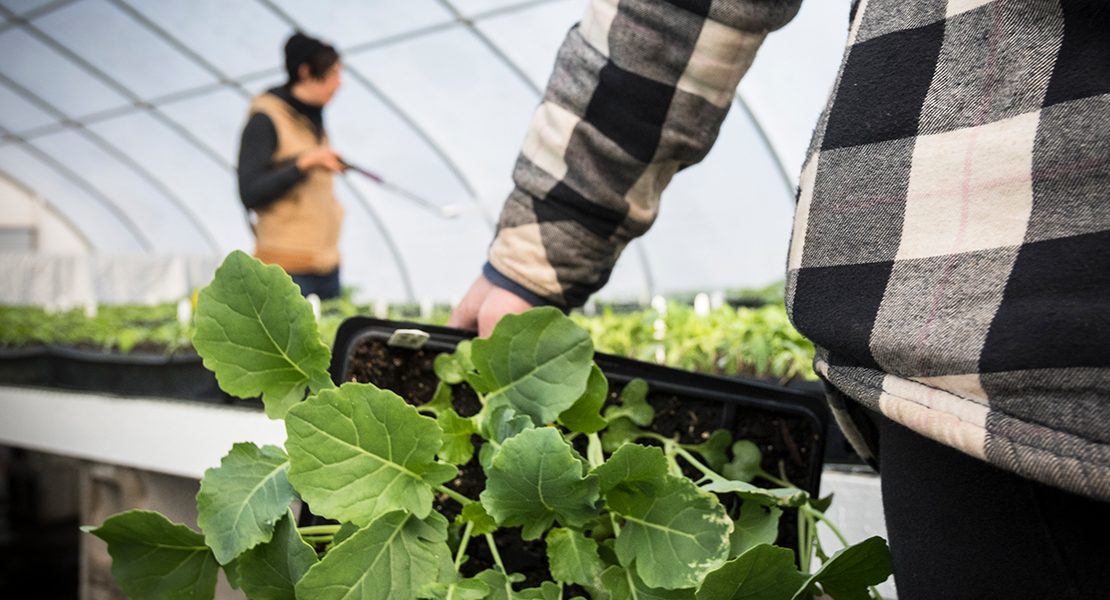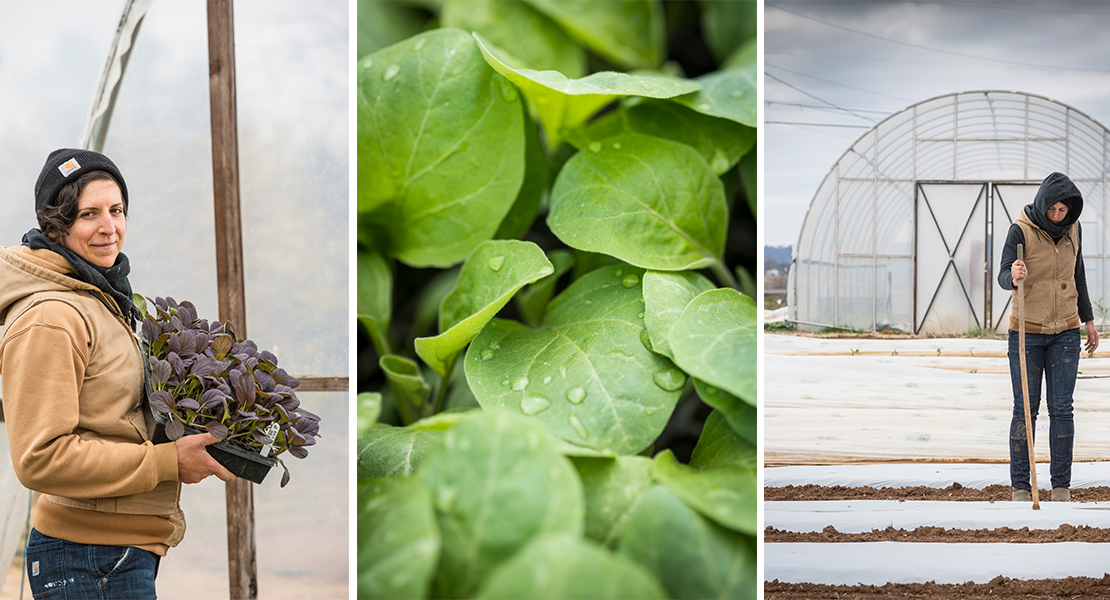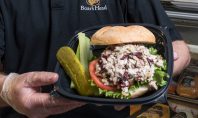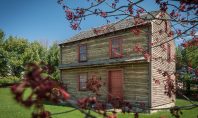Day in the Life of Organic Farmer Lynn Trizna

Like most farmers, Lynn Trizna works long hours and is hyper-focused on the weather, a common fixation in her profession. But unlike most agriculturists, this energetic 30-year-old earned a bachelor’s degree in Urban Studies from the University of Pittsburgh before deciding that her true passion lay in a different field, quite literally.
After an intense, hands-on education in organic agriculture and agronomy, Lynn became the project manager of St. Luke’s Rodale Institute Organic Farm (different than the Rodale Institute in Kutztown), which launched in 2014 at the St. Luke’s Anderson Campus in Easton and now boasts 11 cultivated acres
This innovative partnership puts 100 varieties of fresh organic vegetables on the plates of patients.
This innovative partnership puts 100 varieties of fresh organic vegetables on the plates of patients, employees, and cafeteria visitors at seven St. Luke’s campuses (plus three recent acquisitions to be added in the near future). We invite you to spend a day following in Farmer Lynn’s footsteps—just try to keep up!
7:00 a.m.
After walking through the greenhouse and hoop house to check which seedlings are ready to transplant outdoors, Lynn meets with assistant manager Stephanie Zimmerman-Schmitt to develop a game plan for the staff. “With farming you have to be flexible about what you can accomplish because so much is out of our control—mostly weather. Is it too wet to be out in the fields? Then maybe we should work on harvesting since we can’t plant or do tractor work. If it’s dry, we might focus on prepping fields and laying plastic or mulch for weed control and water conservation.”
8:00 a.m.
Lynn provides a food safety training review for interns and hired workers before heading to the fields. “What’s interesting about this project is all the education that goes along with it. They get to really understand the farm and what goes into growing produce—I’m so proud of them!” As Lynn and the group begin the labor-intensive task of planting, she demonstrates form and technique. “It’s backbreaking work, but you if train your muscles and move in certain ways, you can accomplish things in a certain amount of time.”

10:30 a.m.
A quick order for greens has Lynn harvesting head lettuce, arugula, and spinach, which she then takes to the indoor wash station before packing the items into wax boxes and placing them in the cooler to chill. “Greens are picked the day-of, and maintaining a certain temperature is crucial to food safety, which is why we have a refrigerated van.”
12:30 p.m.
After loading the van, Lynn grabs a sandwich to scarf down as she makes deliveries to the Anderson, Bethlehem, and Allentown campus kitchens. “Chef Paul Meola at Anderson has become our farm liaison and helps coordinate ordering with the other locations. He’s a gardener himself and understands the language of farming.” When she catches the eye of Chef Gary Hall in Bethlehem, he asks when the Brandywine tomatoes are going to be ready—despite knowing they’re several months away. “I grow those for him, and that’s how our conversations always start.”
2:30 p.m.
Back at the farm, Lynn touches base with the workers and is pleased to hear that all the cucumbers have been planted. She waters the greenhouse again and joins the crew as they start planting cherry tomatoes. “We’ve really become known for the Sun Gold variety. I keep the chefs posted about them.”
3:30 p.m.
While record keeping is often a rainy day project, Lynn decides to enter some data from notebooks that she and Stephanie carry in the field. “That helps with planning. We can remember what worked and didn’t work, but we don’t necessarily remember when we do a certain thing.” They also take a lot of pictures. “Everyone always has their phone in their pocket. My phone is like a diary: If there’s a weird bug, I take a picture of it. Because cover crops are important to soil health—they increase organic matter and biomass, and attract pollinators—we refer to those photos to plan timing.”
4:30 p.m.
It’s a nice day, and Lynn isn’t ready to stop working. “Farming is a stress release for me and I love doing it. During this quiet time, I can do smaller tasks that are a bit more enjoyable or take care of little things that don’t need a whole crew, like fixing a leak in the irrigation system. We try to use our manpower very strategically.”
5:30 p.m.
Lynn caps the day with her favorite activity—weeding. “I get bummed out if I can’t weed, which people think is crazy. It’s hard work but I love doing it. That’s why I’m a farmer.” As a further reward, Farmer Lynn is treated to a fabulous farm sunset.




















